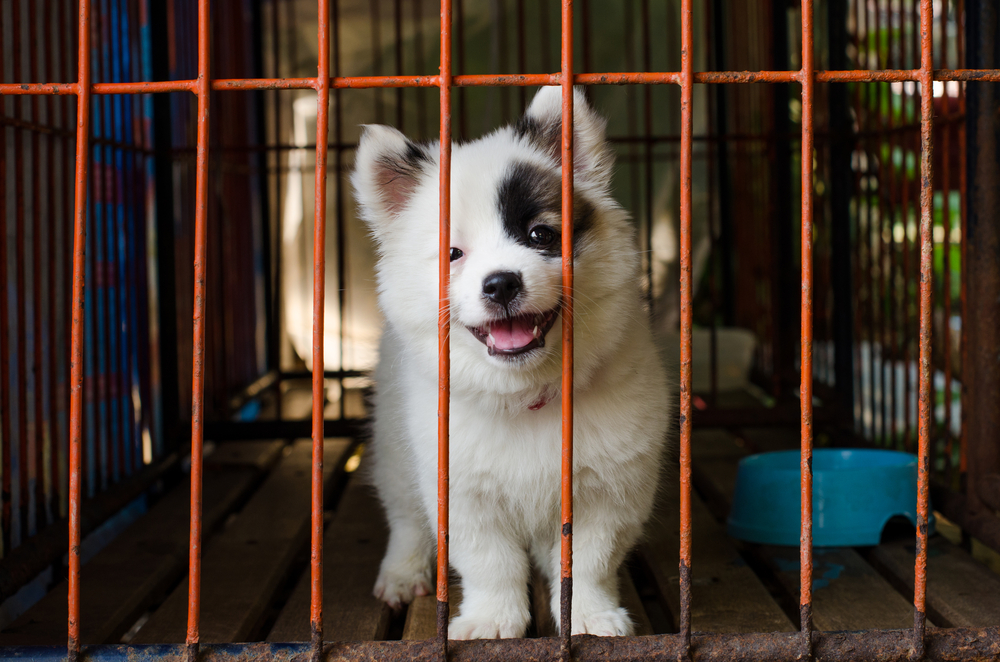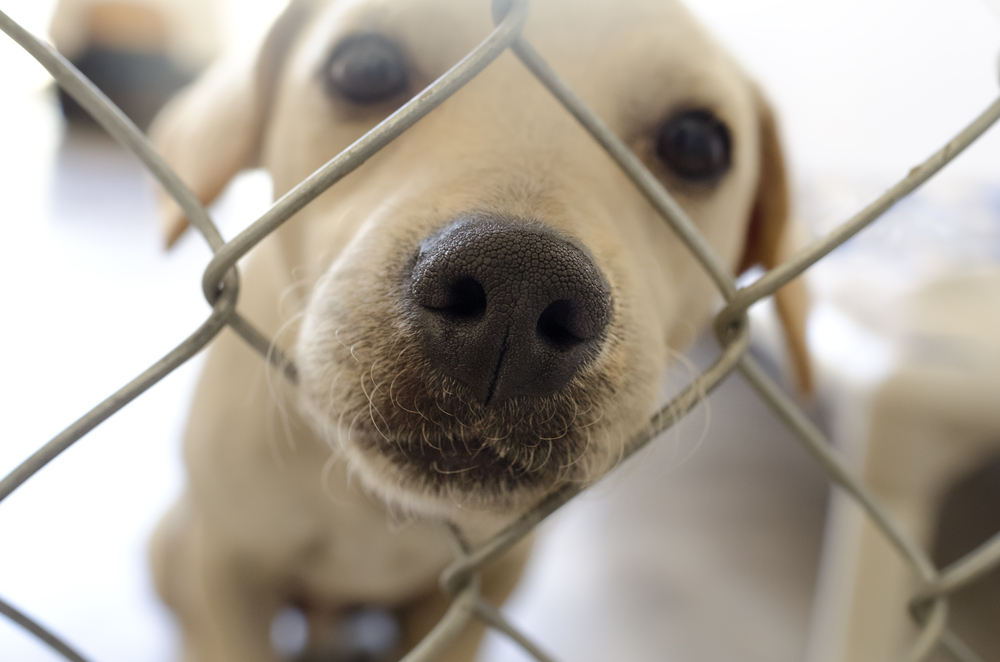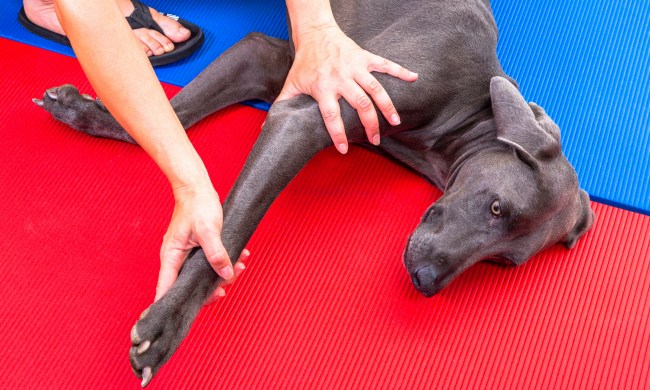All abandoned animals deserve a forever home and the love of a human family who will play with them, care for them, and ensure they live the rest of their days happy and carefree. We’re big supporters of adoption over purchasing animals, but what happens if you have your heart set on a certain breed? You’re in luck. It’s possible to find a purebred dog at rescue shelters nationwide. In fact, an estimated 20%–30% of all shelter dogs are purebreds.
How do purebred dogs end up at rescue shelters?
According to the Humane Society of the United States, there are roughly 10,000 active puppy mills in the U.S., with over 500,000 dogs being kept to produce litter after litter. An estimated 2.6 million puppies sold each year originally come from puppy mills. Unlike reputable breeders, owners of puppy mills are interested only in one thing: profit. If they breed more puppies than they can sell, those puppies are often killed or, if they’re lucky, dropped off at a local shelter. Now, you can share the facts the next time you hear someone ask, “Do shelters have purebreds?”
In addition to puppy mills, many purebreds wind up in shelters because they were purchased by someone who didn’t know how to handle them. You may think Siberian huskies are the most beautiful dogs on the planet, but if you live in a small apartment and work 12 hours a day, your husky won’t get enough exercise or receive enough attention to remain happy. Unhappy dogs can easily become destructive, which often means they’ll most likely get dropped off at the nearest shelter. We strongly recommend researching your favorite breeds thoroughly to ensure they’re the best possible match for your lifestyle.

Finding a purebred dog at your local rescue shelter
If you want to adopt — not shop — your next purebred pooch, here are a few ways to get started.
Search for breeds on different websites
From breed-specific rescues like Don’t Bully My Breed, a Chicago-based nonprofit pit bull rescue, to websites like Petfinder, Adopt a Pet, and the American Kennel Club, finding the breed you want is as easy as a few clicks. Depending on the rescue group, you may have to go through an interview to make sure the dog you want is the right fit for your lifestyle. Given how many dogs end up in shelters because some people adopt them for all the wrong reasons, we think this is a step in the right direction to reduce the number of dogs returned to a shelter for a second time.
Don’t sleep on social media
Many rescue shelters rely on social media to raise awareness, fundraise, and accept donations. Be sure you follow your local rescue shelters on Facebook and Instagram, as they often post about new arrivals as well as the fur babies already awaiting adoption. If you get to know the staff at your local shelter, you may be able to ask them to keep an eye out for a specific breed. This way, you’ll be the first to know when the French bulldog (or Labrador retriever) of your dreams is up for adoption. Feel free to post that you’re looking to adopt a particular breed from a rescue; it’s possible someone will reach out to you.

Talk to the professionals
Whether you currently have a fur baby or not, taking a trip to your local veterinarian is a great way to find a specific breed. Someone in the office may know of a local rescue shelter you can reach out to, and flyers from rescues are often posted on notice boards as you enter the clinic. Because veterinarians deal with pet parents from all walks of life, they may know someone who can no longer care for a dog you’d love to welcome into your home. Similarly, talking with the staff at a store like Petco or PetSmart can help point you in the right direction.
When you choose adoption over purchasing a dog from a breeder, you not only save the life of your dog, but you also make room in a shelter for another animal who might otherwise wind up being euthanized. But adoption doesn’t mean you have to give up your dream of finally having a German shepherd or Chihuahua of your own. With a bit of research, you’ll be able to find the perfect pooch for your home, and you’ll be able to help friends and family adopt purebreds from rescue shelters, too. It’s a win-win for everyone, especially the dogs.




